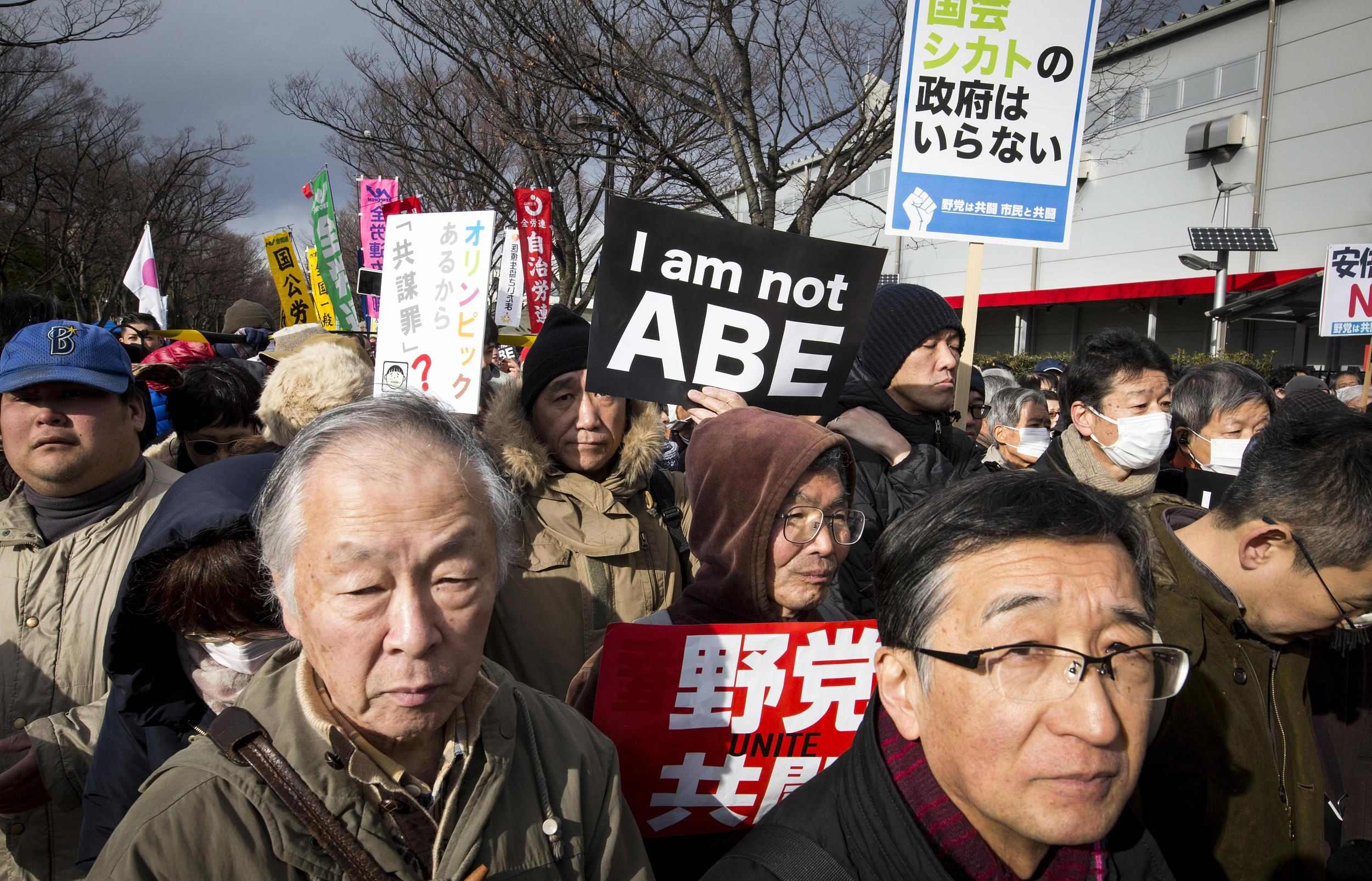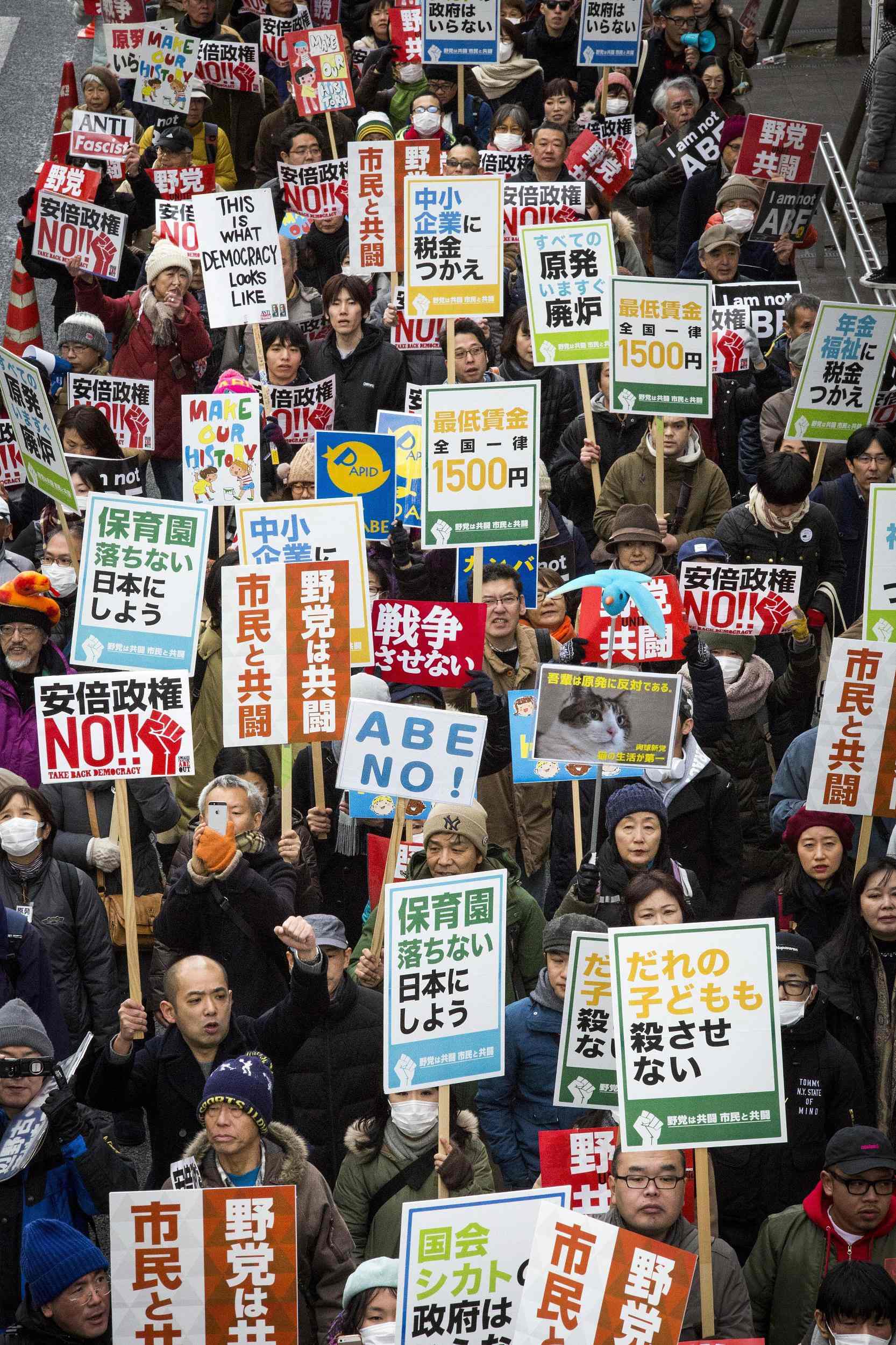At least 8,000 protesters flooded the Shinjuku Central Park of Tokyo to denounce new anti-terror legislation passed in Japan last month and demanded Japanese Prime Minister Shinzo Abe's government to resign on Sunday.
Demonstrators carried placards condemning the law as a compromise of citizens' privacy rights and voiced their anger against the government.
Protesters demanded they wanted to know the "truth" behind the law.

A protester holds placard "I am not ABE" during a rally against his government policies in Tokyo, Japan, January 14, 2017. /VCG Photo
The Japanese upper house of parliament enacted anti-conspiracy bill on June 14 aiming to combat organized crime and terrorism.
However, the new measure gives officers authority and power to monitor and arrest "organized criminal groups," which have knowledge of or plans.
People in Japan have been protesting the bill since last December, when it was first proposed.
The new anti-terror law has been criticized widely.
Joseph Cannataci, UN Special rapporteur on the right to privacy, deemed it as "defective legislation," adding that it ''may affect the exercise of the right to privacy as well as other fundamental freedoms given its potential broad application."

Protesters march the streets of Shibuya holding placards to protest against Japanese Prime Minister Shinzo Abe during a protest denouncing his government policies in Tokyo, Japan, January 14, 2017. /VCG Photo
Nikos Passa, a Boston-based criminology professor who helped draft the UN Convention against Transnational Organized Crime argued the treaty wanted to "exclude ideologically motivated crime" with the cost of weakening citizens' right to free speech.
The protests were also simultaneously witnessed in other major cities, including Osaka, Nagoya and Fukuoka.
But what rocked Abe's governance is more than that, as the Japanese leader has been dogged by allegations of helping a close friend win approval for a veterinary school.
The school is set up in a special economic zone with no lands rental fee at all. Local city assembly even provided the school with 9.6 billion yen (87.67 million US dollars) subsidy.
Because of the new anti-terror law and recent scandals, Abe's support plunges to lowest since 2012, which forces him to announce that he would reshuffle his cabinet as early as next month.







